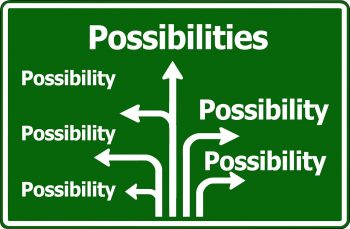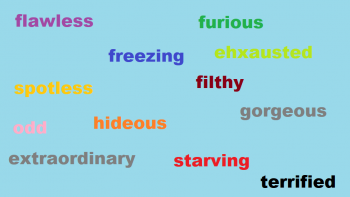Archive for 'English Grammar'
The Advertising Jingle Posted by Gary Locke on Jul 11, 2019

You’ve heard them. They are the combination of a catchy tune and advertising copy. Most of them last only a few seconds. Which is, ideally, all the time you need to absorb the message and get that song stuck in your head. Today, we might call it an earworm. But, for many years it was…
You can’t afford to miss this Posted by carol on Jun 30, 2019

Good afternoon to all! How are you today? With the hot season approaching, sometimes we just feel strongly compelled to just drop everything and take a long trip along the coast, right? I know, but unfortunately I can’t afford to do that right now. That is, I don’t have the time or the money to indulge…
Star Trek and the Split Infinitive Posted by Gary Locke on Jun 27, 2019

Space: The final frontier. These are the voyages of the starship Enterprise. Its 5-year mission – To explore strange new worlds. To seek out new life and new civilizations. To boldly go where no man has gone before! These are the very famous opening lines to the credit sequence for Star Trek. This speech, dating back…
Hang it Up in English Posted by Gary Locke on Jun 20, 2019

My wife and I are making a lot of changes at home right now. We’re renovating bathrooms, installing tile and hardwood floors, painting walls. This means that whatever was hanging on the walls has come down. The walls are bare. But, soon, it will be time to put new things up on those walls. Will…
The Many Possibilities of English Vocabulary Posted by Gary Locke on May 16, 2019

Many of us understand that homonyms are words with the same spelling or pronunciation but have different meanings and origins. We encounter homonyms every day. We also deal with polysemous words, or polysemes, which are words which can be used to express different meanings but have similar origins. The difference between homonymy and polysemy is…
Begging for a Question Posted by Gary Locke on Apr 25, 2019

We hear it, or read it, all the time in English. A statement is made, followed by “…Which begs the question…” Does it? Does it really? I am about to get up on my grammatical soapbox, which is to say that I am about to rant. Forgive me, but it’s time to stop the annoying…
Words to use instead of ‘very’ in English Posted by carol on Mar 31, 2019

Hello to all readers! How are you doing today? Very well? The word ‘very’ in English is, naturally, very important. It is an adverb that we use to emphasize or intensify adjectives: very nice, very big, very good. Using if frequently seems hard to avoid. But can we, though? As an English teacher, I feel…


